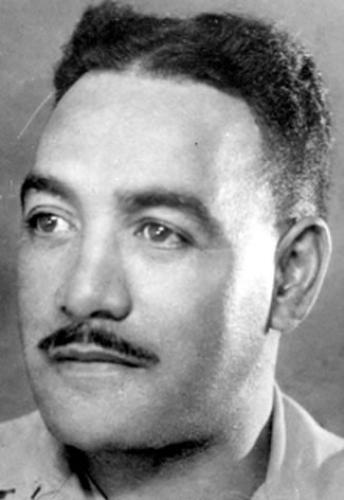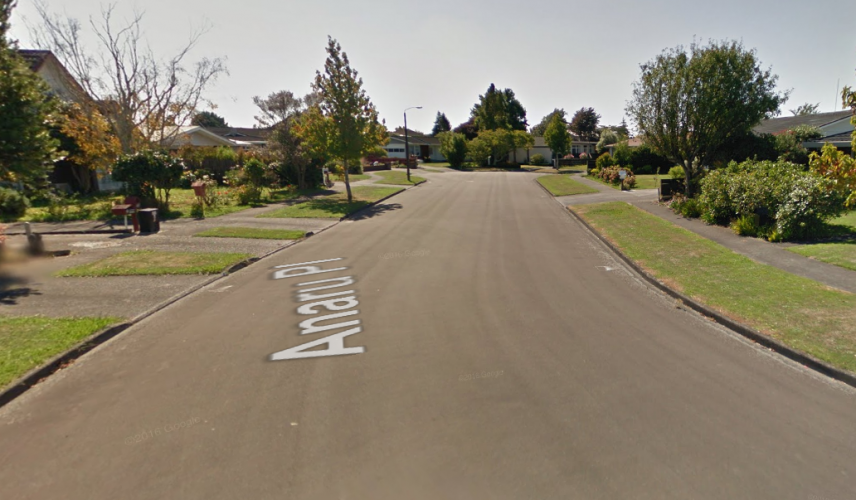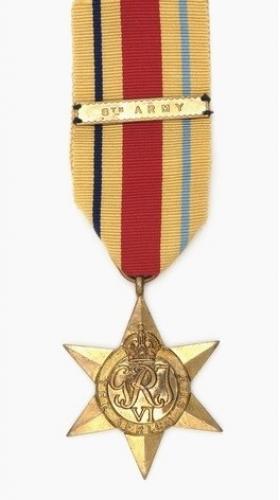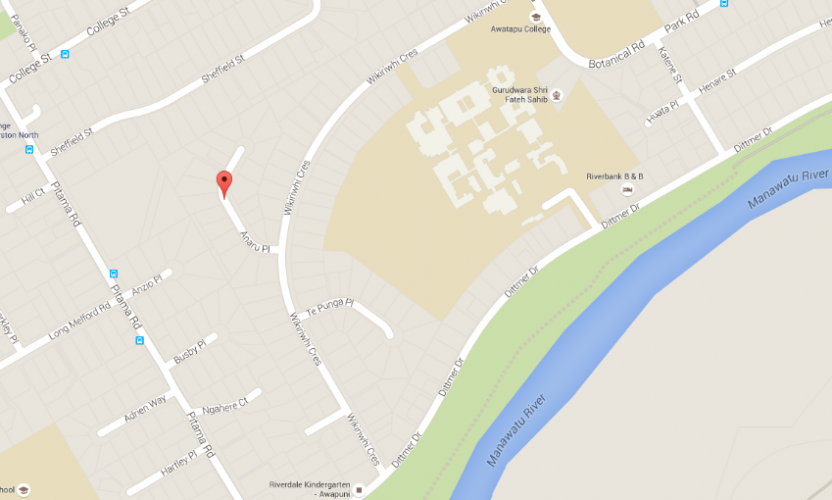097 Anaru Place Palmerston North, street scene 2017
Reason for the name
This street was named in honour of Major Wi Patene Anaru, 28th Maori Battalion
Prior to its subdivision, the land known as Awatapu was a golf course and grazing area situated next to the Manawatu River. In order to free up land for residential development and increase revenue, a Council meeting of 16 April 1963 resolved to subdivide the area via “disposal of sections through Land Agents at pre-determined figures fixed by the Council”. The new Awatapu College had to be allowed for, and the old Awatapu Golf Links shifted upstream to Brightwater Terrace, which then became the Palmerston North Golf Club.
Anaru Place is a cul-de sac created in a dog-leg shape curving in a nearly 180 degree fashion from east to northeast. The only entrance and exit lies off Wikiriwhi Crescent and is home to 21 residential houses. To its east lies Awatapu College, while the Manawatu River flows nearby to its south.
As part of the process of subdividing and naming streets, George Dittmer was contacted in late 1964 to give his thoughts on the naming of streets after 28th Māori Battalion soldiers as a commemoration of their service to their country. Dittmer provided a comprehensive list of soldiers who had served under him which was later utilised by the Council to adopt further street names in the Awatapu subdivision. As part of the final decision making process, the Council accepted Anaru Place, along with Dittmer, Wikiriwhi and Katene, as the first streets to be named after Battalion members on 27th October 1964.
Author: Evan Greensides, Heritage Assistant for Palmerston North City Library.
Wi Patene Anaru was born on 27 February 1905 in the Rotorua District. The son of Mr Tiweka Anaru, a notable officer of the Native Department and registrar of the Waiariki Native Land Court for 30 years, the Anaru family had originally relocated from the East Coast. Wi grew up in the district and upon his enlistment in the New Zealand Army in 1939 stated his occupation as that of a civil servant living on Rangiuru Street and listed his iwi affiliation with Whanau-a-Apanui. He also had 2 years of cadet experience before joining at the age of 34.
The 750 men of the Main Body of the 28th Māori Battalion were to begin instruction almost immediately, but to meet the Battalion’s manpower requirements for officers and NCOs some men were sent to Trentham Military Camp 3 months prior. When Wi entered Trentham Camp on 25 November 1939 at the age of 34 he was one of the oldest men to be sent as part of the first batch of NCO’s to be created for the Battalion. Wi was then sent to the Palmerston North camp at the Agricultural & Pastoral Association Showgrounds on 24 January 1940 and was promoted to sergeant the next day.
With their training completed 3 months later, on the afternoon of ANZAC Day, the men of 28th Māori Battalion paraded in full-kit in The Square, showing their thanks to the people of Palmerston North for their hospitality. The next day, hundreds of whanau and friends lined the route which took the soldiers to the railway station, whereupon they embarked for Wellington and the troopships which would carry them to Great Britain on 1 May, 1940.
As the Battalion left Wellington Harbour on-board the Aquitania as part of the Second Echelon heading towards South Africa, Italy entered the war on the side of the Axis, threatening Egypt. As a result, General Bernard Freyberg flew to Britain to take command of the Second Echelon. Wi and the other men of the Battalion soon found themselves disembarking in Scotland and, although the Italian threat in the Middle East was rising, they were posted to multiple camps throughout England during the rest of 1940. By the time the Battalion embarked for Egypt on 4 January 1941 they had been trained in the many aspects of modern warfare which would serve them well over the next 4 years.
As Wi disembarked in Port Tewfik, Egypt on 4th March 1941, the German Army was preparing to invade the Balkans and drive into Greece. Wi and the Battalion spent a fortnight training at Garawi and learning to live through the heat, sandstorms and flies before they were reconstituted as the Fourth Reinforcements, made up of nearly 1000 men, and sent to Greece on 25 March as part of Lustre Force. It was in early April that Sergeant Wi Patene Anaru took part in his first action against the enemy at Olympus Pass. While this was a testing time with terrible weather hampering the retreat into southern Greece, the worst was yet to come.
As part of the Commonwealth force, the 28th Māori Battalion was evacuated to Crete, but found little respite as the German Army invaded the island. Crete was an important marker for the Battalion as it cemented their reputation as feared opponents in close-quarter fighting and removed doubts in the minds of higher command as to their quality as front-line troops. As part of B Company, Sergeant Anaru was part of the fierce fighting around Platanias, taking part in the first bayonet charge of the war by New Zealand troops on 20th May. Although they had the upper hand for the first few days, Wi and the other men of B Company were soon ordered to retreat, eventually being evacuated back to Egypt on 30th May.
After arriving back in Egypt, Sergeant Anaru undertook desert familiarisation training and sports parades before moving to Kabrit where the 28th Māori Battalion was concentrated with the 5th Infantry Brigade for a three-week combined operations exercise. The next few months involved further training near El Alamein until 11 November when the 5th Infantry Brigade concentrated near Mersa Matruh, whereupon the division assembled and began the advance into Libya. The battalion also attacked a column of Italian tanks and motorised infantry before ambushing a column at Menastir on 3 December. Following this, Wi was transferred to the battalion’s training company and worked in an administrative function for the next 4 months in Syria before returning to Egypt in June 1942.
As part of the Eighth army offensive into Libya and attempt to link up with American forces in the west, the 28th Māori Battalion took part in the capture of Tripoli and the thrust toward the Mareth Line. For his service and experience in the war thus far, Wi Anaru was commissioned as a 2nd Lieutenant on 9 January 1943 and was attached to B Company under the command of Captain C Sorenson. This was to be a test under-fire for the newly commissioned officer. The 28th Māori Battalion was attacked by 10th Panzer Division on 6 March, but this was repulsed. Further, on 26 March 1943, 2nd Lieutenant Anaru was involved in the attack on Point 209, at Tebaga Gap in Tunisia, an action in which his comrade, 2nd Lieutenant Te Moananui-a-Kiwa Ngarimu, was awarded a Victoria Cross posthumously. Finally, on 20 April, the men of B Company took part in the offensive towards Takrouna. After Captain Sorenson was wounded, Wi was put in command of 11 Platoon and continued to advance, but he too was soon hit by shrapnel and carried off the field. Wi spent the next 2 months in hospital recuperating before being discharged from hospital 7 June1943. His wounds being relatively minor, Wi remained in North Africa with the battalion behind the lines, being shuffled between the training depot and administration. In October, while the battalion prepared to invade the “soft underbelly of Europe” via Italy, Wi entrained for Alexandria as an administrator, an area he was to remain in until joining the battalion again in January 1944 as part of an audit board.
After entering Italy, Wi was quickly promoted to 1st Lieutenant and then to temporary 2nd in command of B Company in February. This, again, was a testing time for the newly promoted officer; throughout March and April. With their operational strength below 200 men, the battalion was utilised throughout the third battle of Cassino. 1st Lieutenant Anaru and B Company were first deployed as reconnaissance units and later ordered to clear the area around the railway station inside Cassino. While the battalion was able to re-enter the town after counterattacks, they were quickly withdrawn and on the 19th April they were deployed to Colle Belvedere overlooking the destroyed town. There they were to hold part of the left flank and provide support to any patrols, living amongst the dead and under constant shelling and fire.
In May, Wi was promoted to temporary Captain and remains 2nd in command of B Company. After Rome falls in June, the 28th Māori Battalion advanced north of Cassino. Much of Wi’s time was taken up visiting the sick and wounded at 2 New Zealand General Hospital near Caserta in the company of Captain Huata. Along with general duties on base and conducting drill with B Company, Wi also took small groups of men on leave to Rome. In late June Wi was attached to 5 NZ 2nd Regiment for a month in administrative duty, then notified that he would be heading home as he had been transferred on to the New Zealand Roll. On 21 August, Wi was made an acting Captain in preparation for his new posting and travelled via Alexandria and Port Tewfik, arriving in Wellington on 31 October 1944.
Upon his arrival in New Zealand Wi was posted to the Paeroa District as part of a pool of ex-overseas service members. Although he had left the frontlines, Wi’s injuries from Tarkouna continued to dog him. He was sent to hospital in Paeroa and listed as not fit for service, given 3 months of leave and then struck off the New Zealand Roll. Captain Anaru left the army in February 1945 and was put on to the Reserve of Officers Supply List, an action which would see his retirement as only temporary.
Wi returned to his hometown of Rotorua after his service was completed and spent the next 3 years in the area. Within a week of the Japanese surrender in August 1945, Britain invited New Zealand to participate in the occupation of Japan, with the New Zealand government agreeing to contribute air and ground troops. However, it wasn’t until February 1948 that Wi’s services would again be called upon. He was re-attested, being promoted to the rank of temporary Major on 6 March immediately before embarking for Japan. After arrival, Wi was added to the roll of New Zealand Jay Force personnel as part of the last contingent of 2 New Zealand Expeditionary Force and would spend the next 6 months in the provinces of Yamaguchi and Hiroshima. Wi returned to New Zealand on 16 August 1948 and was reposted to the Reserve of Officers Supplementary List. For his service, Wi Patene Anaru finished his career in the New Zealand Army as a full Major.
Wi Patene Anaru lived out the rest of his life in Rotorua and died on 17th January 1968. He was survived by his wife Ngaro Horne from Pukehina and one adopted son, Murray.
Honours and Awards
- 1939-45 Star
- Africa Star with 8th Army Clasp
- Italy Star
- Defence Medal
- War Medal, 1939-45
- NZ War Service Medal









